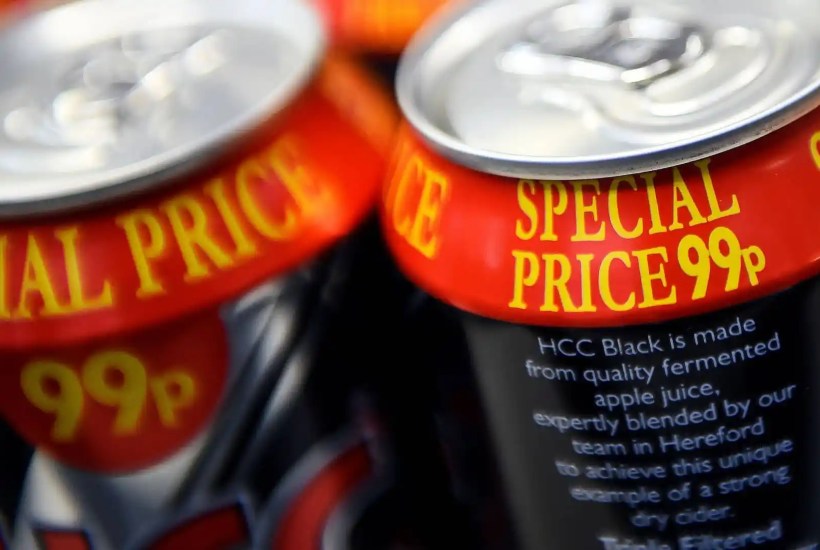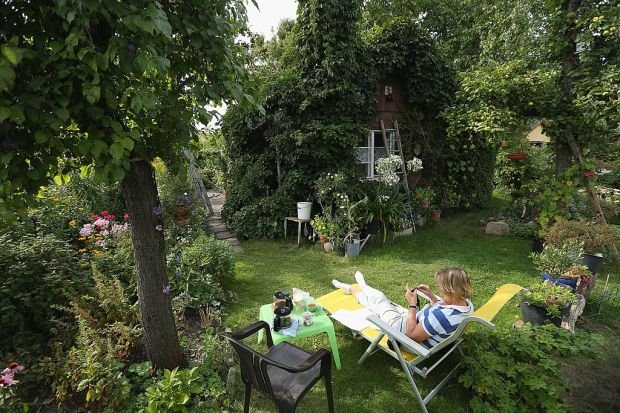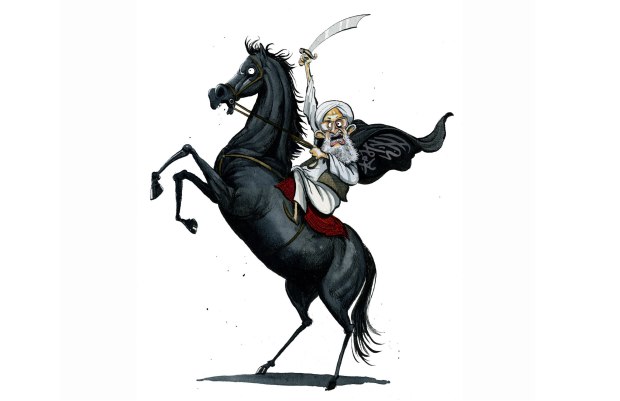It has been a pathetic sight to watch politicians pleading with the supermarkets to lower food prices. Inflation has yet again proven to be more persistent than the government expected and it will do almost anything to bring it down. The Chancellor has even said that a recession would be a price worth paying to get the cost of living under control. But while the government resorts to ‘voluntary price caps’ on food, it still plans to ban most buy-one-get-one-free food offers in October. A double-digit hike in alcohol duty will come into effect in August. Smokers of rolling tobacco have already endured a tax rise of inflation plus 6 per cent this year.
Everything is moving in the direction of more state control of people’s private lives
Clearly the government’s commitment to tackling high prices only goes so far. When it’s a choice between addressing the cost of living and appeasing the ‘public health’ lobby, there is only ever one winner. The latest edition of the Nanny State Index, published today, finds the UK moving up one place in the league table of shame, from 12th to 11th. Britain is the worst country in Europe to be a smoker and only Hungary is worse for the over-regulation of food and soft drinks. We have some of the highest alcohol taxes and our only saving grace is that we are relatively tolerant towards vapers.
The Index looks at how food, drink, e-cigarettes and tobacco are regulated in 30 European countries. Since I started editing it in 2016, it has shown a gradual downward spiral nearly everywhere. Liberalisation is as rare as hen’s teeth. Everything is moving in the direction of more state control of people’s private lives.
Governments looking to reduce their fiscal deficits after the pandemic have found common cause with ‘public health’ extremists who promote sin taxes. Twelve of the 30 countries have taxes on sugary drinks. In 2017, there were only five — not a bad rate of expansion for an anti-obesity policy that has never reduced obesity anywhere. Most of the taxes on sugary drinks also apply to artificially sweetened beverages, thereby giving the game away that this is a money-making scheme for governments.
Fifteen countries tax e-cigarette fluid — up from eight in 2017 — and two other countries (Turkey and Norway) ban the sale of e-cigarettes outright. It is difficult to think of a more counterproductive public health policy.
There are no longer any countries where the decision on whether to allow smoking in bars and restaurants is left entirely to the owner. Thirteen countries that have ‘comprehensive’ (i.e. draconian) smoking bans apply the same restrictions to vaping.
And there are now alcohol display bans (Ireland and Turkey), food display restrictions (the UK) and plain packaging for e-cigarettes (Denmark, the Netherlands and Turkey).
The only good news for consumers since 2021 has been Norway repealing its sugar tax and Italy cutting its tax on e-cigarette fluid. Beyond that, the only slivers of liberalisation have been Slovakia moving the watershed for spirits advertising on television from 10pm to 8pm and Spain allowing spirits advertising on television between 1am and 5am, but these are slim pickings indeed. The big picture is one of a constantly expanding nanny state raising prices and trampling freedom.
England has been a happy hunting ground for nanny state campaigners for well over a decade and is currently going further and faster than any other country in trying to control what people eat. Scotland is even worse, introducing minimum pricing for alcohol in 2018 and proposing a ban on all advertisements for alcohol and e-cigarettes last year. The latest ideas floating around in ‘public health’ are a ban on so-called ‘junk food’ advertising and a ban on disposable vapes.
None of this stuff has worked, will work or could work. There is no correlation between nanny state measures and life expectancy. The countries with the toughest laws and highest taxes on alcohol and tobacco do not have lower rates of drinking and smoking. All the nanny state does is keep us poorer and more miserable than we would be if we were left to our own devices.
Chris Snowdon is the Head of Lifestyle Economics at the Institute of Economic Affairs and editor of the Nanny State Index.
Got something to add? Join the discussion and comment below.
Get 10 issues for just $10
Subscribe to The Spectator Australia today for the next 10 magazine issues, plus full online access, for just $10.




















Comments
Don't miss out
Join the conversation with other Spectator Australia readers. Subscribe to leave a comment.
SUBSCRIBEAlready a subscriber? Log in